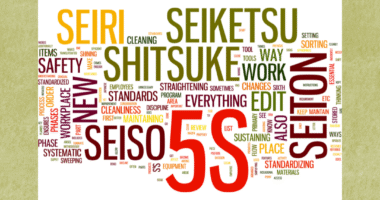In today’s fast-paced business environment, companies are under constant pressure to improve efficiency, reduce costs, and deliver greater value to customers. Lean operations provide a powerful approach to achieving these goals by focusing on waste reduction, streamlined processes, and continuous improvement. Implementing lean strategies can fundamentally transform the way a business operates, creating long-term benefits for both employees and customers.
Understanding Lean Operations
Lean operations are based on the philosophy of maximizing value while minimizing waste. This approach originated from the Toyota Production System and has since been widely adopted across industries. The core principles of lean include defining customer value, mapping the value stream, creating flow, establishing pull, and pursuing continuous improvement.
By applying these principles, organizations can ensure that every process contributes to value creation and that resources are used efficiently.
Key Ways Lean Operations Transform Your Business
1. Reduce Waste and Lower Costs
Lean operations focus on eliminating the seven types of waste: overproduction, waiting, transportation, overprocessing, inventory, motion, and defects. By minimizing these inefficiencies, companies can significantly reduce operational costs while improving productivity.
2. Improve Efficiency and Productivity
Streamlined workflows and standardized processes allow employees to work more effectively. Lean operations remove unnecessary steps and bottlenecks, resulting in faster production cycles and optimized resource use.
3. Enhance Product Quality
Lean emphasizes consistency, standardization, and error prevention. This leads to fewer defects, higher quality products, and stronger customer trust.
4. Foster Employee Engagement
Lean operations encourage team involvement and problem-solving. Employees are empowered to suggest improvements, take ownership of processes, and contribute to continuous improvement, boosting morale and productivity.
5. Increase Customer Satisfaction
By delivering products faster, at lower cost, and with higher quality, lean operations ensure that customer expectations are consistently met or exceeded. This builds loyalty and enhances brand reputation.
6. Promote Continuous Improvement
Lean is not a one-time project but a long-term strategy. Businesses that embrace lean develop a culture of ongoing improvement, allowing them to adapt quickly to market changes and remain competitive.
Conclusion
Lean operations have the power to transform businesses by creating efficient, high-quality, and cost-effective processes. Through waste reduction, employee engagement, and continuous improvement, companies can enhance productivity, improve customer satisfaction, and maintain a competitive edge in the market. Implementing lean strategies is more than just operational change—it is a cultural shift that drives sustainable growth and long-term success.









